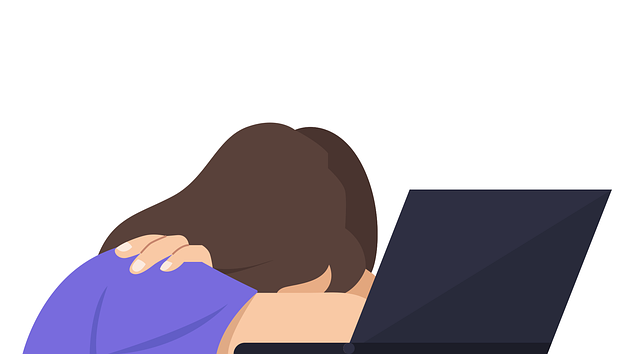In today's demanding professional landscape, workplace issues and job stress significantly impact mental health, potentially exacerbating existing illnesses. Journaling and self-care practices are powerful tools to combat these stressors. Regular journaling aids reflection and emotional processing, while organizations can empower employees through stress management workshops featuring techniques like mindfulness and time management. Building resilience with methods like mindfulness meditation and exercise is vital for maintaining healthy self-care. Healthcare provider cultural competency training further contributes to supportive work environments, enhancing coping abilities and job satisfaction. Integrating these strategies effectively addresses Lakewood Workplace Issues and Job Stress Therapy concerns, promoting a healthier work-life balance.
“Unwind, rejuvenate, and reclaim your mental health – that’s the essence of this comprehensive guide to self-care practices. In today’s fast-paced work environment, understanding the profound impact of workplace issues and job stress on our mental well-being is paramount. We’ll explore evidence-based strategies to manage stress at work, drawing from Lakewood Workplace Issues and Job Stress Therapy for a healthier, more resilient you. Get ready to navigate your career with enhanced resilience and a sustainable self-care routine.”
- Understanding the Impact of Workplace Issues and Job Stress on Mental Health
- Incorporating Effective Self-Care Strategies for Stress Management at Work
- Building Resilience: Tips for Sustaining Healthy Self-Care Practices in a Demanding Job Environment
Understanding the Impact of Workplace Issues and Job Stress on Mental Health

The impact of workplace issues and job stress on mental health cannot be overstated, especially in today’s fast-paced and demanding professional landscape. Many individuals face various challenges at their jobs, from heavy workloads to toxic work environments. These Lakewood workplace issues and job stress can significantly contribute to the development or exacerbation of mental illness. It’s crucial to recognize that mental wellness is not merely the absence of a diagnosis but a state of overall emotional, psychological, and social well-being.
Journaling and mental wellness practices have emerged as powerful tools to combat the effects of workplace stressors. Regular journaling allows individuals to reflect on their experiences, process emotions, and identify patterns in stress triggers. This self-care practice provides guidance for managing stress and promoting mental resilience. Moreover, by documenting thoughts and feelings, one can reduce the stigma associated with mental illness, fostering a culture of open dialogue and support within organizations.
Incorporating Effective Self-Care Strategies for Stress Management at Work

In today’s fast-paced work environment, where Lakewood workplace issues and job stress therapy are becoming increasingly common, prioritizing self-care is more important than ever for maintaining mental well-being. Effective self-care strategies can help manage work-related stress, enhance productivity, and foster a healthier work-life balance. Implementing these practices in daily routines can be transformative, especially for healthcare providers prone to burnout prevention strategies.
Stress management workshops within organizations play a pivotal role in introducing employees to tools like mindfulness exercises, time management techniques, and healthy coping mechanisms. These initiatives encourage individuals to take charge of their mental health by integrating self-care into their busy schedules. A well-structured self-care routine development program can significantly contribute to better mental health, ensuring individuals feel equipped to handle workplace pressures while maintaining a sense of equilibrium in their personal lives.
Building Resilience: Tips for Sustaining Healthy Self-Care Practices in a Demanding Job Environment

In today’s fast-paced and demanding job environments, building resilience is paramount to sustaining healthy self-care practices. Effective stress reduction methods, such as mindfulness meditation and regular exercise, can help individuals navigate the challenges posed by Lakewood workplace issues and job stress therapy. Incorporating these practices into one’s daily routine fosters better mental health and overall well-being.
Developing a robust self-care routine involves setting realistic boundaries, prioritizing tasks, and engaging in activities that nurture both physical and emotional health. Healthcare provider cultural competency training can play a significant role in promoting understanding and empathy among professionals, fostering supportive work environments. By adopting these strategies, individuals can enhance their ability to cope with stress, improve job satisfaction, and create a more balanced lifestyle despite the demands of their careers.
In addressing Lakewood workplace issues and job stress, it’s clear that implementing effective self-care strategies is essential for mental health maintenance. By understanding the impact of these challenges and adopting resilient practices, individuals can navigate demanding job environments while prioritizing their well-being. Incorporating regular self-care routines, such as mindfulness, exercise, and adequate rest, allows for better stress management at work, fostering a healthier and more productive lifestyle. With dedication and the right tools, maintaining healthy self-care practices is achievable, even in the face of workplace pressures.














